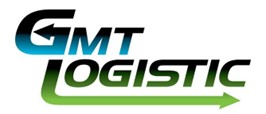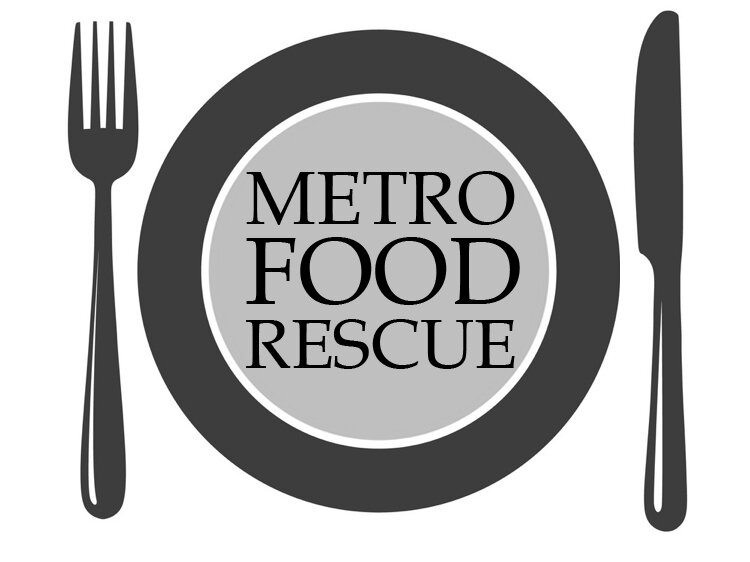Reasons to Give
Becoming a member of our donor family offers an easy way for you to accomplish your charitable dreams. As our partner in giving, you receive the simplicity and tax advantages of a public charity combined with the personal recognition, involvement and flexibility of a private foundation. You also gain access to the highest level of strategic thinking on ways to meet community challenges to help make your contributions as effective as possible. And because we plan to be here, serving this community for a long time, you can be assured that there will be a permanent source of funds available for issues you care about.
Easy
A fund can be established with a simple governing document that requires less than an hour to prepare. And we'll guide you carefully through the process. Giving should warm your heart, not burden you with tax complications and ongoing administrative details.
Flexible
We take pride in our ability to customize services to meet your charitable objectives. You may establish a fund that supports charitable organizations, contribute to an existing, or make an unrestricted gift that our Board of Directors will put to good use in the community on your behalf.
Effective
We are dedicated to ensuring that your charitable giving is as effective as possible. Your fund will share the costs of a knowledgeable staff, enjoy excellent financial management and benefit from a closely monitored investment strategy. Each donor has committed staff working on his or her behalf.
How to Give
Special funds can be created to handle tributes and memorials. Contributions may also be made to existing funds in order to:
- honor a living person
- memorialize deceased persons
- commemorate anniversaries or other special events
Donors can use this giving option to:
- create a youth program within our mission that keeps the memory of a deceased child alive.
- Help us to engage a civic group in creating an emergency relief fund for a disaster.
If you have questions about memorial or commemorative gifts, please contact us for more information at 248-960-9975.
Outright gifts can include cash, securities, real estate, and life insurance.
Gifts of cash
A cash gift is the simplest way to establish a named fund or to add to an existing fund. Cash gifts are fully deductible up to 50 percent of the donor's adjusted gross income in any one year. Deduction amounts exceeding this limit may be carried forward for up to five additional years.
Securities
Gifts of appreciated securities (bonds and stock, including stock in closely held companies) also may be used to establish a fund or add to an existing fund. Such gifts often provide important tax advantages. Their full fair market value is deductible as a charitable contribution up to 30 percent of your adjusted gross income. As with gifts of cash, deduction amounts exceeding this limit may be carried forward for up to five additional years. The added benefit of giving appreciated securities is the avoidance of the capital gains tax on the appreciated portion of the gift. Gifts of closely held stock enjoy the same tax benefits as with publicly traded stock.
Life insurance
Life insurance policies also can be used as charitable gifts. If you name our community foundation as the owner and beneficiary of an existing or new life insurance policy, you receive an immediate tax deduction, which usually approximates the cash surrender value of the policy. All premium payments made by you thereafter will be deductible as a charitable contribution.
If you have questions about outright gifts that have not been answered in this section, please contact us for more information.
Many donors choose to leave charitable assets upon their deaths. After assuring that their loved ones have been cared for, donors can use a variety of assets, such as pension plans, life insurance or the proceeds from the sale of a house, for charitable purposes.
Bequests
You can establish or add to your named fund in your will or trust through a bequest. Your gift can be used to accomplish almost any charitable goal:
- Establishing a fund
- Creating an endowment for a particular program or need
- Leaving a family legacy, which allows children to continue their involvement in charitable grant making.
Pension plan beneficiaries
A retirement plan is one of the best types of assets to transfer to a charity because it produces taxable income. Most assets an heir inherits are free from income tax. However, an heir will pay income tax on disbursements from a decedent's retirement plan such as a profit sharing plan, Section 401(k) plan or IRA. If you are going to make a charitable bequest, it is usually better to transfer the taxable assets subject to income tax to a tax-exempt charity — such as Hospitality House — and to transfer the assets not subject to income tax to heirs.
For a taxable estate over $3 million, the combination of estate and income taxes will frequently exceed 75 percent of the total amount — even more if the generation skipping transfer taxes are triggered. At a cost to your heirs of only 25 percent of the fair market value of these type of assets, you could apply 100 percent of the assets to a named charitable fund to accomplish your specific charitable objectives.
Life insurance beneficiaries Perhaps you would like to contribute the proceeds of a life insurance policy to help the community, but you are not yet ready to give up ownership of the policy. By naming Hospitality House only as beneficiary, you retain ownership of the policy and have access to the cash value as well as the right to change the beneficiary.
If you don’t have liquid assets right now but want to support a favorite charity, a gift of life insurance may be a good option. While you retain ownership of the policy, there is no charitable deduction for the value of the policy when you designate a community foundation as the beneficiary or for subsequent insurance premiums. However, proceeds payable to Hospitality House at your death will not be subject to federal estate taxes.
We encourage you to work with your lawyer or financial advisor as you consider these options. Our staff is experienced in the use of these giving vehicles and is eager to work with you and your advisor in this process. If you have questions about remainder gifts that have not been answered in this section, please contact us for more information.
Charitable remainder trusts
A community non-profit like ours can administer charitable remainder unitrusts and annuity trusts, both of which pay lifetime income to you or other named beneficiaries.
Establishing a trust is simple. Cash or property is transferred to the trust. The income beneficiaries receive annually an amount equal to a fixed percentage of the trust's fair market value (unitrust) or a fixed dollar amount (annuity trust). Upon termination of the trust, the assets are transferred to your named charitable fund to support your individual or personal charitable giving goals.
Charitable gift annuities
A charitable gift annuity from our agency is a way for you to receive a guaranteed income for life and an immediate income tax deduction, while at the same time, leaving a legacy to the charitable cause of your choice.
Through a charitable gift annuity, you receive a fixed stream of income for life. After paying the lifetime annuity to you and your spouse, the remaining principal is transferred to your named charitable fund to accomplish your specific charitable goals. Our payments to you are based on your age; the older you are, the higher the rate. If the annuity is for you and your spouse, the calculation is based on your joint ages. If you need the income now, you can use our deferred plan and receive the income tax deduction now, but begin receiving payments when you reach a specific age. This is an excellent complement to your existing retirement plan.
The tax advantages of both a current and deferred annuity are two-fold. First, you receive an immediate income tax charitable deduction when you create your annuity. This is based on your age and annuity payout rate. Second, a portion of the payments you receive may be treated either as tax-free return of principal or long-term capital gains. These tax advantages increase the net income you receive.
Our development staff is pleased to provide a free, personalized analysis regarding your charitable gift annuity rate and tax deduction information. As these giving vehicles are complex and related to other estate planning, we encourage you to work with your lawyer or financial advisor. If you have questions about life income plans that have not been answered in this section, please contact us for more information.
Specific Bequest
Specific Bequest "I give to the Hospitality House of Commerce Twp, a Michigan nonprofit corporation, $_____ to be used for the agency’s charitable purposes in accordance with and subject to the governing instruments of Hospitality House[to be used for …] or [to be added to the ______Fund*] or [to establish the ______Fund for the following purposes ___________**]."
Percentage Bequest
Percentage Bequest "I give to the Hospitality House of Commerce Twp, a Michigan nonprofit corporation, ____% of my residuary estate to be used for charitable purposes in accordance with and subject to the governing instruments of Hospitality House[to be used for …] or [to be added to the _____Fund*] or [to establish the _____Fund for the following purposes ____**]."
Residuary Bequest
Residuary Bequest "I give to the Hospitality House of Commerce Twp, a Michigan nonprofit corporation, the remainder of my estate, both real and personal, to be used for charitable purposes in accordance with and subject to the governing instruments of Hospitality House [to be used for …] or [to be added to the _____Fund*] or [to establish the ______Fund for the following purposes _______**]."
Contingent Bequest
Contingent Bequest "If the above-named beneficiary (ies) predecease(s) me, then I give such amounts of property absolutely to the Hospitality House of Commerce Twp."
*Adding to an existing Fund of Hospitality House
If your client wishes to support an existing fund at Hospitality House please contact us for complete list of endowed funds or visit hhfp.org
**Establishing a new Fund by bequest
If your client's gift meets the minimum contribution required, the donor may create a separately identifiable permanently endowed fund by name and purpose by adding language from one of the options below:
Named Fund/Unrestricted Purpose
This devise will be used to establish an endowed fund at the Hospitality House known as the ______________Fund. It is my intent and expectation that the Fund be a permanent endowment fund and may not be wholly expended. Distributions from the Fund will be made as Hospitality House deems appropriate to those charitable organizations or for those charitable purposes determined by the Board of Directors in accordance with its investment and distribution policies as may be amended from time to time.
Field of Interest Fund
This devise will be used to establish a field of interest fund at the Hospitality House to be known as the _______________Fund. I direct that the distributions from the Fund be used for __________________. (specify broad area of charitable purpose - for example, "Food purchases", "Breathing Room", "Pit Stop”) It is my intent and expectation that the Hospitality House • 2075 E. West Maple Rd Ste B204, Commerce Twp, MI 48390 • 248.960.9975 fund be a permanent endowment fund. Distributions from the fund will be made as Hospitality House deems appropriate in accordance with investment and distribution policies adopted by the Board of Directors as may be amended from time to time.
Scholarship Fund
This devise shall be used to establish a Scholarship Fund at the Hospitality House to be known as the ___________Fund to support scholarships for ___________. It is my intent and expectation that the Fund be a permanent endowment fund. Distributions from the Fund will be made as Hospitality House deems appropriate in accordance with investment and distribution policies adopted by the Board of Directors as may be amended from time to time. I recommend that a Selection Committee consisting of ___________, _____________, and ______________ may make written recommendations from time to time to the Board of Directors concerning grants from the Fund, provided the proposed grant is in furtherance of the general charitable purposes of Hospitality House. I recognize that these recommendations may be accepted or rejected, in whole or in part, by the Board of Directors in its sole discretion. (Members of the donor’s family or other parties closely related to the donor, such as professional advisors, may not constitute a majority of the selection committee).
Donor Advised Fund
This devise shall be used to establish a donor advised fund at the Hospitality House to be known as the ______________________Fund. It is my intent and expectation that the Fund be a permanent endowment fund. Distributions from the Fund will be made as Hospitality House deems appropriate in accordance with investment and distribution policies adopted by the Board of Directors as may be amended from time to time. I direct that an Advisory Committee consisting of _____________, _____________, and ____________ may make written recommendations from time to time to the Board of Directors concerning grants from the Fund, provided the proposed grant is in furtherance of the general charitable purposes of Hospitality House. I recognize that these recommendations may be accepted or rejected, in whole or in part, by the Board of Directors in its sole discretion.
Legacy Society
The Legacy Society is a way to celebrate the generosity of those who have made a planned gift to Hospitality House. Membership request forms are available by contacting Donovan Neal, Executive Director of 248-960-9975 or donovan@hhfp.org.
Hospitality House is happy to honor the wishes of donors that prefer to remain anonymous.
Join the Legacy Society
Individuals who make a commitment to Hospitality House's future through a planned gift or bequest are invited to join the Legacy Society.
Legacy Society members have named Hospitality House in their wills, qualified retirement plans, life insurance policies, trusts or pooled life income funds.
Your planned gift or bequest puts you in good company today. Tomorrow, your endowed fund will be multiplied with gifts from other caring individuals and families to do good works in our community for generations to come.
Legacy Society members receive many special benefits. If you desire, your name will be placed on the Legacy Society wall in the pantry. You will also receive an invitation to the annual Legacy Society members meeting with our Board of Directors, a copy of our annual report and recognition within the annual report. You may also choose to remain anonymous.
When the time is right for you to include a gift in your will to charity, please remember Hospitality House Food Pantry. We would be happy to discuss Legacy Society membership with you and your advisor to determine what options may work best for your specific situation.
If you have included Hospitality House in your estate plans and are not a recognized Legacy Society member, please contact our Executive Director at (248) 960-9975.
FAQ
You can support the elimination of hunger, helping the unhoused, improving self-sufficiency, and more. Our staff has broad knowledge of the lakes area community needs and can target grants to make a difference where they are needed most. Tell us what is important to you.
Any time you are drafting or changing your will or estate plan, you will want to consider charitable gifts. Your financial or legal advisor can provide guidance related to your personal estate, beneficiaries, income goals, taxes, and other considerations. In addition, you may find it simpler to designate the Hospitality House as a beneficiary to your 401(k), IRA or life insurance policy. When you notify us of your intentions, you will be invited to become a member of the Legacy Society.
No. We realize individual circumstances vary. We value and appreciate all gifts, and believe the best gift is the one that’s right for the giver.
You can call your estate advisors, talk to us, or consult with both. We provide confidential philanthropic services to prospective donors and their advisors without obligation.
Planning an estate gift allows you to strategically accomplish both financial and charitable objectives. For some people, a large charitable gift during their lifetime can be financially uncomfortable—since they may be uncertain about their health, wealth and personal commitments. An estate gift may make more sense. You can still fulfill your personal goals of preserving your family name, honoring loved ones, providing for heirs, minimizing tax burdens and supporting the community you call home.
Your professional advisor can recommend your most tax-advantaged assets any time you make a charitable gift. Many people choose to give stocks and other highly appreciated assets during their lifetime and designate 401(k), IRA, and other retirement assets upon their death.








